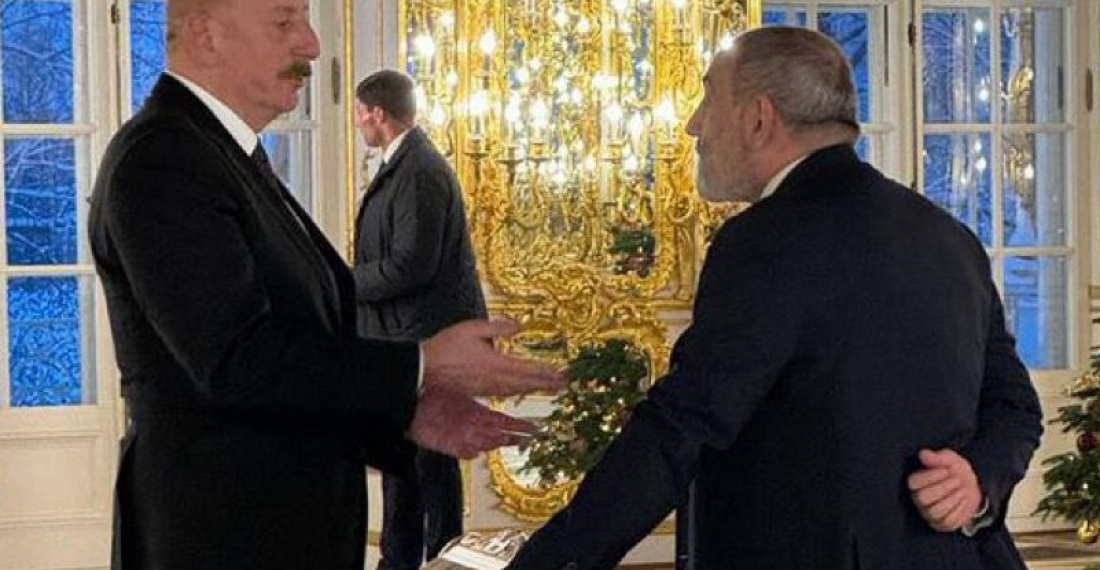The history of negotiations between Armenia and Azerbaijan in 2021-23 seems not to have thought us any lessons, even though the lessons are evident, writes Benyamin Poghosyan in this op-ed on commonspace.eu. "No serious ground exists to have any agreement signed between Armenia and Azerbaijan", he argues.
Ever since the end of the 2020 Nagorno-Karabakh war, every meeting between Armenian and Azerbaijani leaders has been portrayed as raising significant expectations of some breakthrough. In 2021, all looked to Russia, where Prime Minister Pashinyan and President Aliyev met twice in January and November. Starting from 2022, the geography of hope for a breakthrough moved to Brussels, where Pashinyan and Aliyev met in April, May, and August. Even the large-scale Azerbaijani incursion into Armenia in September 2022, less than two weeks after the August 31 trilateral summit in Brussels, did not appear to diminish the hopes that every meeting may bring Armenia and Azerbaijan closer to peace. In late September 2022, experts and policy officials started to speak about possibly signing a peace deal by the end of 2022. Even the absence of a peace agreement and the start of the blockade of Nagorno-Karabakh by Azerbaijan in December 2022 did not shake the belief in some magic after each Armenia – Azerbaijan negotiation encounter. In the first half of 2023, the center of gravity of expectations shifted towards Washington DC as Armenian and Azerbaijani foreign ministers held two rounds of negotiations in May and June. Even the disregard by Azerbaijan towards the measures of International Court of Justice on the blockade, the establishment of block post on the Lachin corridor in April, and the complete cut of Nagorno–Karabakh from the world in June 2023 somehow did not significantly decrease the hopes that Armenia–Azerbaijan negotiations would bring results soon.
Strangely, the pinnacle of expectations was reached in September 2023, alongside the military takeover of Nagorno–Karabakh by Azerbaijan and the forced displacement of more than 100,000 Armenians from the region. In October, November, and December 2023, almost all – Armenian and Azerbaijani officials, representatives of the EU, and others – spoke about the high chances of a peace agreement signature by the end of 2023. Even Azerbaijan's rejection to participate in the scheduled negotiations in Granada, Brussels, and Washington DC in October and November 2023 did not stop the wishful talking about an imminent peace agreement. The December 7, 2023, Armenia – Azerbaijan agreement on the exchange of POWs and Armenia's support to Azerbaijan to host COP29 continued to fuel positive expectations. This time, it seemed that bilateral negotiations were going to be the panacea to reaching the agreement, as the Armenia – Azerbaijan Commission on Delimitation and Demarcation met twice along the Armenia – Azerbaijan border in November 2023 and January 2024.
The new stop in this long journey of expectations and performative diplomacy was the 2024 Munich Security Conference. Prime Minister Pashinyan held a meeting with President Aliyev, facilitated by German Chancellor Scholz, and both Aliyev and Pashinyan met the US Secretary of State Blinken. Hopes seemed high again that this time, agreement between Armenia and Azerbaijan was within reach. Armenian, Azerbaijani and international media have been posting stories about the agreement between Aliyev and Pashinyan to continue negotiations on the document at the level of foreign ministers and the commitment to avoid using force to solve the remaining issues between the two countries.
But one has to wonder whether the 2021 – 2023 history of negotiations did not teach us any lessons, while the lessons are evident. No serious ground exists to have any agreement signed between Armenia and Azerbaijan. The key reason is that President Aliyev does not need a deal. Any agreement signed between Armenia and Azerbaijan will restrict his ability to use the image of Armenia as the external enemy and continue to rally the population around his rule in the "new era of Azerbaijan's development," the definition for post – 2023 Azerbaijan coined by President Aliyev himself. Armenia – Azerbaijan deal will also decrease, albeit not seriously, the possibility – if not the justification – of Azerbaijan using force against Armenia in pushing forward its demands on issues related to enclaves, a non-controlled corridor for Azerbaijani citizens to travel from Azerbaijan to Nakhijevan via Armenia, and the idea of "return of Azerbaijanis into their homeland – the current Republic of Armenia." Thus, Azerbaijan has no incentives to sign an agreement with Armenia, with the benefits being unclear. Some may argue that by signing an agreement with Armenia, Azerbaijan will open the path for geopolitical changes in the region, including Armenia – Turkey normalization and Armenia's gradual shift from Russia. While this will benefit the US and, to a lesser extent, the EU, benefits for Azerbaijan are not clear. First of all, it will complicate relations with Russia, the region's most potent external player; and in general, more EU and US political presence will not benefit Azerbaijan and Turkey. Azerbaijan has benefited significantly from its economic cooperation with the EU – selling oil and gas and presenting itself as a potential transit route for Europe to reach Central Asia and China. The tragic events of September 2023 proved that as a minimum some European countries are not going to downgrade their relations with Azerbaijan because of developments in Armenia–Azerbaijan relations.
Thus, instead of creating never-ending and never-realized expectations for upcoming peace between Armenia and Azerbaijan, the countries involved in South Caucasus geopolitics, local and international experts, think tank communities, and media will better serve Armenian and Azerbaijani society and the international community by looking for steps to prevent new large-scale escalation by Azerbaijan, as limited clashes, unfortunately, seem to be inevitable. The external players should be more clear about implications for Baku, if it launches new attacks against Armenia regardless of the pretexts, while international experts and think tanks should avoid wishful thinking.







